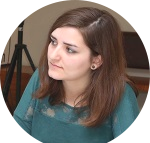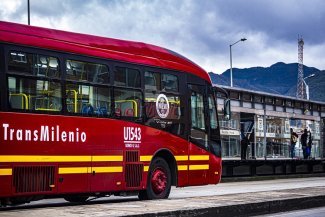On Friday 20 January 2017, Donald Trump was officially sworn in as the 45th President of the United States of America, amid widespread national and international dismay. Many abroad are concerned about the policies of the new US president, whose lack of political or diplomatic experience coupled with his brash personality, have left most people guessing as to what his presidential career will bring.
For Palestinians, this uncertainty is compounded by the high stakes at play. The Israeli-Palestinian conflict has always been strongly influenced by the United States, and the role Trump will play in the coming four years could be a decisive factor in the Palestinian struggle – for better or for worse.
While Palestinian leadership has repeatedly expressed its willingness to cooperate with the new US administration, many Palestinians have resigned themselves to America’s near-unwavering support of Israel, regardless of who is in office.
According to a December poll by the Palestinian Center for Policy and Survey (PSR) in the occupied West Bank and the Gaza Strip, 83 per cent of respondents said that then-President Barack Obama had not made serious efforts to resolve the Israeli-Palestinian conflict.
Some 47 per cent said they expected Trump to stand with Israel, and 30.4 percent thought he would do nothing about the conflict.
“I believe that American foreign policy is not something that can be changed overnight or during a four-year presidential term,” Lubnah Shomali, a Palestinian-American dual citizen and a unit manager at legal NGO BADIL, told Equal Times.
“American foreign policy vis-à-vis Palestine-Israel isn’t etched in stone, but I think it will take a lot more than Trump to have any real impact on what we experience either as Palestinians or Palestinian-Americans.”
However, Israel’s far right has already been emboldened by Trump, perceiving the businessman’s election as a green light to expand the building of settlements in the occupied Palestinian territory and further entrench its occupation policies, effectively burying any hope of a two-state solution.
Israeli Education Minister Naftali Bennett notably gushed in November that “Trump’s victory is an opportunity for Israel to immediately retract the notion of a Palestinian state in the centre of the country... the era of a Palestinian state is over.”
“Israel, of course, will increase” its oppressive policies, Palestinian MP Khalida Jarrar told Equal Times. “We can look to how things already are on the ground – demolishing houses, assassinating people, discussing legislation in the Knesset refusing to stop settlements…They have gone further and further to the right, and they will continue their aggressive policies.”
Yet Trump’s unpredictable nature has meant that it has been hard to gauge which policies the new American president will enact.
“I think we have be cautious when analysing the future of Trump’s presidency so that we don’t fall in the same trap we fell in when Obama became president eight years ago,” Palestinian-American author and columnist Ramzy Baroud told Equal Times.
“There was much optimism then, and it was almost entirely predicated on his words. His actions, however, proved quite different.”
“That said, I think Trump is keen on siding with Israel…In his view, Israel is the big kid on the block, it’s the strongest militarily in the region, and it has tremendous political clout and impact on American politics through Congress, media, and culture.”
“Trump might be positive for the Palestine-Israel issue”
Before coming into office, Trump had already taken many worrisome steps – denouncing a UN resolution on illegal Israeli settlements in the occupied Palestinian territory; appointing his son-in-law, a strong supporter of Israel, as Middle East peace negotiator; and most controversially, promising to move the American embassy to Israel from Tel Aviv to Jerusalem, a move which Trump’s administration recently said was in the “beginning stages” of discussion.
The possible embassy transfer has been of particular concern to Palestinians, the polemic was furthered heightened by the fact that the embassy may be built on reportedly “confiscated refugee land.”
A number of protests took place across the occupied Palestinian territory denouncing the move, as Palestine Liberation Organisation Secretary-General Saeb Erekat warned that Trump acceding to Israeli demands would be “burying any hopes for a just and lasting peace in the region.”
“I am worried that he will do it,” Jarrar said of the embassy move. “Maybe not now, maybe not tomorrow, but there is a worry.”
“If he moves the embassy...it would be very dangerous. It would be a huge violation of international human rights and of talks of East Jerusalem as the capital of Palestine,” she added.
Jarrar, like many, said that the embassy issue could spark a serious response from the Palestinian public.
“I expect that they will absolutely refuse. I expect that there will be huge anger against this,” she said.
Baroud agreed with this assessment, although he added that pre-existing tensions – just as 2017 marks both the 100-year anniversary of the Balfour Declaration and 50 years of occupation of the West Bank and East Jerusalem – would make it hard to attribute any future Palestinian popular uprising exclusively to Trump.
“The Palestinian streets are likely explode in fury and protests, but whether that will lead to a long-term Intifada or not will depend on a whole set of factors that would be difficult to assess at the moment,” he said.
While the outlook remains grim, some Palestinians believe that Trump, paradoxically, could make things better on the long run by hastening the degradation of the status quo.
“I think we already know that the peace process is dead, the two-state solution is buried, but the problem is that the US has sustained that whole charade because it remained politically and diplomatically useful,” Baroud said.
“I actually think [Trump] might be positive for the Palestine-Israel issue,” Shomali asserted. “The fact that we have two very extreme leaders – Netanyahu for Israel and Trump for the United States – will make the situation deteriorate much faster, which I think means the sooner we hit rock bottom, the sooner we start going back up.”
However, it will require serious political change in order for Palestinians to make the best out of the situation. Baroud, for one, called for “unity, unity, unity.”
“Palestinians need to redefine their movement to that of a national liberation movement, as opposed to that of political institutions,” he said. “This was one of the main faults of Oslo; it gave the Palestinian Authority a façade of political sovereignty, but over a militarily occupied nation.”
“But by including Palestinians, at home and in diaspora, and all factions, in Palestinian decision making, the Palestinian leadership will navigate this rough political terrain with confidence and with a popular mandate which it had lacked since the beginning of the so-called peace process.”
Jarrar remained a little more cautious.
“It will be difficult to expect [a change], because Palestinian leaders still believe in direct negotiations between Palestinians and Israelis,” she said. “I hope it will be an opportunity for alternative political steps, but up until today, it is difficult to say that.”
Alternatives, Jarrar said, would involve pushing for more Palestinian diplomatic involvement with the international community outside of the United States, lodging appeals to the International Criminal Court, and pursuing Boycott, Divestment and Sanctions (BDS) efforts.
“Civil society, whether it’s Palestinian or international, will now be more exposed to the realities of this discrimination, this racism, and this bias that the United States has with regards to Israel and Palestine, which was veiled with this peace process,” Shomali said. “Now that veil is going to come off.”









